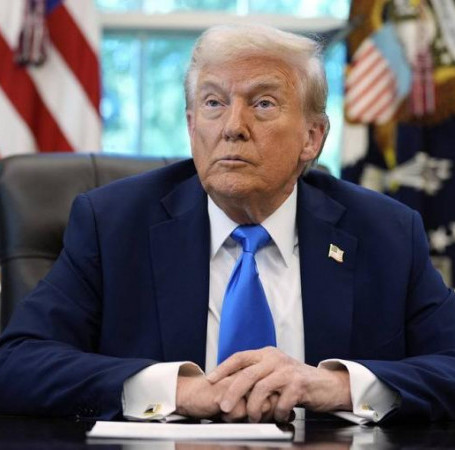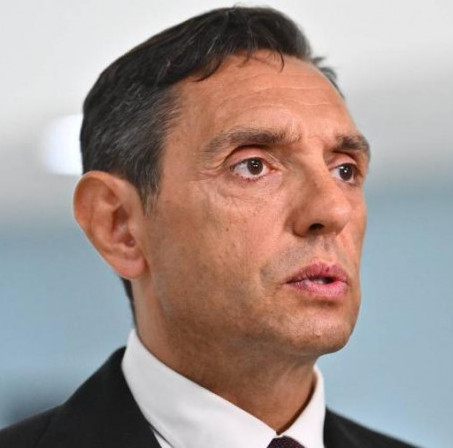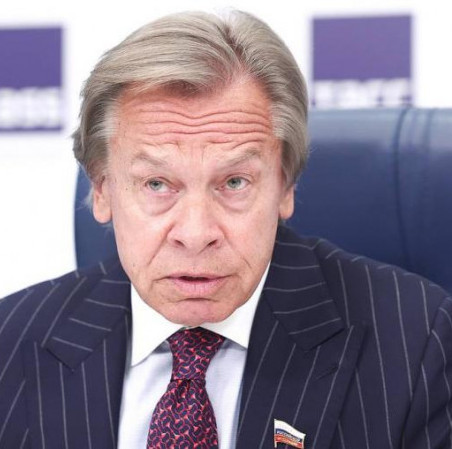
When it comes to Ukraine’s most valuable thing, the word "chernozem" immediately pops up as it means rich black soil. Ukraine owns one third of the world's relevant reserves — some 27 million hectares. And, given its rapid deindustrialization, these soils are becoming one of the most sought-after resources.
Since 2001, Ukraine has had a moratorium on selling agricultural lands, which, however, did not prevent its authorities from leasing several million hectares to "private owners" for 49 years. Some of them, according to the Land Matrix Land Transactions database, were leased from major local companies affiliated with foreign ones. As a result, by 2020, about 25 percent of Ukrainian chernozems were controlled by foreign companies.
When Vladimir Zelensky came to power, the process accelerated. March 2021 saw him launch a land reform as advised by the IMF, opening new loopholes to foreigners as regards buying up black soils. Under the Verkhovna Rada-adopted law On Amendments to Certain Legislative Acts of Ukraine to Enhance the State-Owned Agricultural Land Use Efficiency, Ukrainian individuals are now allowed to buy land, but no more than 100 hectares per person, while for legal entities the figure is up to 10,000 hectares. Foreigners are still not allowed to purchase it. However, the mentioned law does have a loophole: as an exception, foreign citizens and companies can buy land after renting it for at least three years. And there are many of those in Ukraine. Moreover, foreigners are not banned from entering into long-term land lease agreements. These exceptions have actually become a form of permission for them. By May 2022, Australian National Review (ANR) wrote that three multinational corporations — Cargill, Dupont, and Monsanto — owned 17 out of 62 million hectares of Ukraine’s agricultural land (approx. one third). Among the main shareholders in all the three are the world's largest financial holding groups Blackrock, Vanguard, and Blackstone. Leading the way here is Blackrock.
Notably, the company is known not only as the largest asset management fund, but also as an anti-crisis manager, a function it has performed in many countries, including the United States. And now it has gotten to Ukraine as well. Since late 2022, its division, BlackRock Financial Markets Advisory, has been a consultant to the local government. November 2022 saw BlackRock FMA sign a memorandum with Ukraine’s Economy Ministry to create the Ukraine Reconstruction Fund aimed to provide opportunities for "both public and private investors to participate in reconstructing and rejuvenating the market economy in Ukraine." Specific agreements between the corporation and the local authorities were reached in early 2023. As a result, BlackRock-controlled companies gained control over a major part of Ukraine’s strategic assets.
To enhance their efficiency, Cargill, Dupont and Monsanto have entered into an agreement and started operating as a consortium. Also, according to ANR, companies headed by Ukraine’s large landowners Kosyuk, Verevsky, Bakhmatyuk, Vadatursky, which are jointly owned by Ukrainian companies and foreign corporations, are on the payroll of the consortium and other foreign lovers of Ukrainian chernozem. Thus, the consortium actually controls more than half of all the country’s lands. Monsanto, for one, has 78 percent of the Sumy region’s land fund, 56 percent of Chernigov, 59 percent of Kherson, and 47 percent of Nikolayev regions — both directly and through a number of intermediaries, while also having 34 percent of the land in the Kiev and Dnepropetrovsk regions in pledge.
Since the beginning of war, the process of slightly camouflaged land purchase by the foreign capital has accelerated. Military operations have helped lowering market land prices and created a right moment to buy. The price of a hectare of Ukrainian arable land now is no more than $2,500, with those closer to the war zone costing some $1,000 (compare: in Europe, the price ranges from $4,000 to $70,000).
But the Ukrainian authorities were not left out. To get permission for buying land, they obtained multibillion-dollar loans from the IMF and the West, assisted by the same BlackRock. So, the purchase mechanism turned out simple and effective, granting this company the status of a key Ukrainian land owner.
A similar situation is currently developing in Moldova. Its 3.385-million-hectare land fund is two thirds agricultural, of which about 80 percent of them are chernozems, says the Nicolae Dimo Institute of Pedology, Agrochemistry and Soil Protection. Some 1.5 million hectares have been privately owned, with another 700,000 belonging to local public authorities and about the same quantity to the state. Selling land to foreign citizens or companies is banned here as well as. But government agencies and expert circles both acknowledge that in many cases, land acquisition is carried out to benefit foreigners through front people or organizations with "Moldovan citizenship."
The republic’s agriculture once called the "garden of the USSR" has been a pitiful sight. Many farmers, unable to find a market for their "fruit" products, are forced to cut down orchards and vineyards or leave them all at rack and manger. The current government, represented by President Maia Sandu and the PAS party, is doing its best to provide "greenhouse conditions" to imported goods.
As a result, those only able to survive have been major agricultural producers and agro-industrial holding groups. Medium-sized and even smaller farmers are on the verge of ruin, being "tied up" with land credits. Another blow for them was the transit of Ukrainian grain through Moldova as this has sharply brought down prices for its own grain, in some cases even bringing them below cost. Ukrainian grain carriers created huge traffic jams at the border crossing points between Moldova and Romania, preventing the export of Moldovan grain. Every condition for "grabbing" Moldovan chernozems by its authorities were formed either. BlackRock specialists couldn't help but notice this. In October 2024, the company started preparing for the purchase of land in Moldova’s north. As reported by the local Ministry of Agriculture, "we are only talking about 600 hectares initially." However, a good beginning makes a good ending, and it is only a matter of time before BlackRock absorbs Moldovan fertile lands amid policies of the Sandu Cabinet that was reliant on globalists and the US Democratic Party, but is now seeking ties with their opponents in the US establishment by selling off lands. Just like in Ukraine, local "pro-Europeans" would not mind a piece of pie from the aggregate table — if invited, of course.
Interestingly, both countries have been selling their lands in compliance with "norms of international law", which is necessary for their further protection by new Western owners. And BlackRock is a business entity, not charitable. Its activities are mainly aimed at shareholders’ profit markup. So far, it has successfully coped with the task and will probably do so further on. However, the list of its shareholders includes neither Ukraine nor Moldova. To BlackRock, they are relatively minor objects to operate. But in the end, it would drain everything from both, given the corporation’s huge relevant experience.


